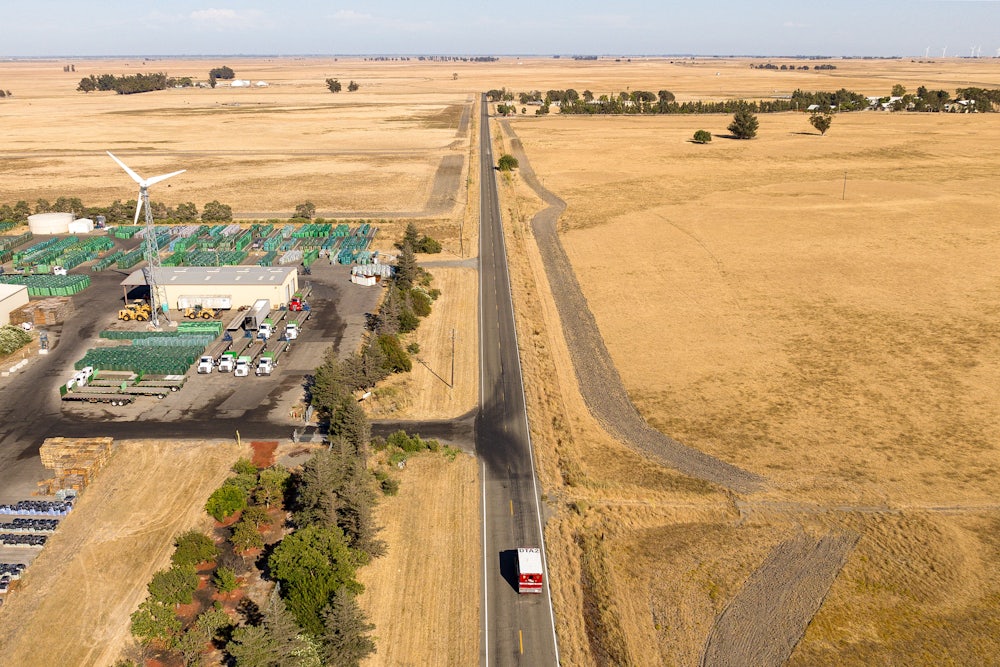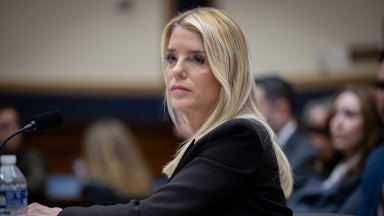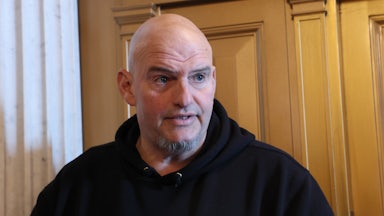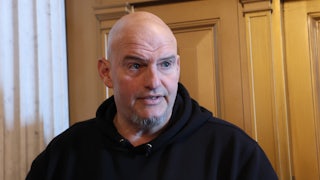It is easy to mock the absurdity of California Forever, the new city that a group of tech billionaires want to build amid cattle pastures 60 miles north of San Francisco. Its wealthy backers frame the project—envisioned as a mega suburb with dense housing and walkable streets set on 60,000 rural acres—as an innovative solution to California’s housing shortage. But their bumbling and villainous antics may ensure it never gets built.
The
particulars of this caper veer into the ridiculous. Flannery Associates, the
billionaires’ front group, sneaked around for five years on a stealth mission
to snatch up $900 million worth of agricultural land in Solano County, where
land use laws expressly forbid projects like the one the group proposes. The
company lavished money on local landowners, overpaying for the land by millions
and creating a frenzy. Then, after some local landowners resisted their offers,
the billionaires filed a $510 million lawsuit against them.
Ironically, the plutocrats turned plaintiffs accused this handful of holdouts
of “endless greed.”
Solano County residents—whose approval will be needed next November for the project to move forward—are understandably dubious of the shady billionaires and their secretive plan for a new community whose name sounds like a celebrity cemetery. At packed town hall meetings, community members from cities like Fairfield, Rio Vista, and Vacaville have voiced fierce opposition. They fear the project will spur environmental damage, traffic, pollution, and sprawl.
Yet there’s potentially a more sinister angle. California Forever aligns suspiciously with a cultish dystopian movement to build so-called “network states”—private zones where tech zillionaires can abandon democratic society to live under the rule of their own private micro governments. The secret plot to assemble vast swaths of land and build a new city fits a pattern of wealthy Silicon Valley types attempting to construct similar enclaves around the globe. San Francisco billionaire Michael Moritz, a driving force behind California Forever, appeared to hint at the idea in his pitch to potential investors back in 2017.
“He
painted a kind of urban blank slate where everything from design to
construction methods and new forms of governance could be rethought,” reported The New York Times,
which first revealed the billionaires’ plan.
What
does it mean to rethink “new forms of governance”? In a new book called Crack-Up
Capitalism: Market Radicals and the Dream of a World Without Democracy,
historian Quinn Slobodian chronicles the efforts
of billionaires to create “alternative political arrangements at a small scale”
through “acts of secession and fragmentation, carving out liberated territory
within and beyond nations.”
In a
world of intensifying crises like climate change and economic inequality, some
billionaires have a novel solution: high-tech secession.
“We
can secede by removing children from state-run schools, converting currency
into gold or cryptocurrency, relocating to states with lower taxes, obtaining a
second passport, or expatriating to a tax haven,” writes Slobodian. “We can
secede, and many have, by joining gated communities to create private
governments in miniature.”
Despite Silicon Valley’s talk of techno-optimism and abundance, many tech plutocrats are plagued by a “creeping sense of paranoia” about the future, said Slobodian in an interview. Fearing the possibility of civilizational collapse—or driven by “greed, megalomania and the desire to have a zero percent tax rate”—some tech elites seek a retreat into bespoke fortress societies.
Slobodian’s
book details ongoing efforts by wealthy interests to acquire land and carve out
independent territories for themselves. It’s a dystopian vision in which
existing countries and governments, hollowed out by capital flight and
declining tax revenues, will theoretically be left to collapse outside their
highly fortified walls.
“The
proponents of crack-up capitalism envisioned a new utopia: an agile, restlessly
mobile fortress for capital, protected from the grasping hands of the populace
seeking a more equitable present and future,” writes Slobodian. First, however,
these wannabe tech sovereigns must convince current governments to sanction the
development of these special zones.
Creating
special zones where normal rules don’t apply is an old idea. Slobodian, a
critic of these new schemes, traces their global history. For example, the
Bahamas, the Cayman Islands, and Bermuda are Caribbean tax havens with weak
regulatory laws designed to serve corporations and wealthy individuals. Dubai’s
22-square-mile “economic free zone” caters to 9,500 corporations enjoying long,
union-free tax holidays there. Communist-ruled China has over a dozen Special
Economic Zones where capitalism (but not democracy) reigns supreme.
The
planet is pocked with designated places where wealthy people and corporations
can evade rules. But a new generation of venture capitalists seeks to innovate
the concept further by creating spaces where they can evade democratic society
altogether. Slobodian cites venture capitalist Peter Thiel, an early secession
proponent and an investor in one such
proposed community called Praxis, who wrote in 2009: “I no longer believe that
freedom and democracy are compatible.”
Initially,
the concept involved creating independent offshore communities in the world’s
oceans, outside of the reach of national jurisdictions. To that end, Thiel
funded the Seasteading Institute, which sought to structure
the governments of these floating communes after corporations.
“Democracy
is not the answer,” declared the institute’s founder, Patri Friedman, a
grandson of conservative economist Milton Friedman.
But
since no one wants to be stuck on rusty oil rigs or claustrophobic cruise
ships, the idea evolved. Today, the focus has shifted to “cloud communities.”
These are virtual “nations” of people united via digital networks. Just as
cryptocurrencies like bitcoin aim to replace traditional currency, creators of
these online crypto societies hope to replace traditional countries. Once they
have a sufficient number of citizens in their cloud, they can migrate to their
chosen lands.
Tech
barons have worked to fund the creation of these future zones in Asia, Africa, Latin America, and the
United States. Newly proposed billionaire-founded cities include Praxis,
envisioned as a “crypto commune” in the Mediterranean, and Telosa,
a new city of five million people somewhere in the United States. Just last week,
even Kanye West jumped on the
bandwagon, announcing plans to build a new city on 100,000 acres in the Middle
East.
In
2020, Balaji Srinivasan—a close
associate of both Thiel and California Forever investor Marc Andreessen—published “The Network State: How to
Start a New Country.” Srinivasan, the idea’s leading
evangelist, defines a network state as “a highly aligned online community with
a capacity for collective action that crowdfunds territory around the world and
eventually gains diplomatic recognition from pre-existing states.”
Srinivasan
envisions an explosion of new mini-nations in which “the people are spread
around the world in clusters of varying size, but their hearts are in one
place.”
He
depicts traditional patriotism as an outdated concept with no place in the
world of the future. “Is the US establishment a force for good in the world?”
asks Srinivasan, who Donald Trump reportedly considered appointing as head of
the Food and Drug Administration in
2017. “Is the US establishment a force for good at home?” His answer:
“No.”
Srinivasan,
whose manifesto favors short paragraphs and numbered lists, also speaks
matter-of-factly about the possibility of another Civil War.
“It’d
be nothing like the movies, with huge movements of uniformed soldiers, tanks
and planes,” he writes. “Instead, it’ll just be a continuation and escalation
of what we’ve seen over the last several years: a network-to-network war to
control minds, rather than a state-to-state war to control territory.”
In October, Srinivasan gathered like-minded techies in
Amsterdam for the first annual Network State Conference. Speakers informed the
audience about the latest efforts to establish autonomous communities. They
included Jason Benn, founder of The
Neighborhood, a network of interconnected co-living projects located
within one square mile in San Francisco and funded by Schmidt Futures, a
philanthropic arm of former Google CEO Eric Schmidt. Garry Tan, the Y
Combinator CEO currently leading a tech-funded campaign to take over the San
Francisco Board of Supervisors next year, touted successful efforts to create a
“parallel media” and political machine. (Srinivasan lists capturing local
governments via elections as an alternative to starting new ones.)
California
Forever also had a brief cameo during a dramatic presentation by a security
expert and former Army artillery officer named Spencer
MacDonald.
“Network
states and startup cities are starting to get more momentum,” said MacDonald,
founder of a cryptosecurity firm, during a slide deck presentation titled
“Parallel Security of Network States.” “So we need to start talking about
security.”
The
fourth slide of his deck featured an artist’s rendering of the proposed
California Forever development, which was publicly released in September. “I
interviewed many startup city founders,” read the text accompanying the image.
“They are thinking about security (and other aspects of execution) in close
coordination with host nation governments.”
A few
slides later, MacDonald’s presentation featured a picture of the destroyed
border wall between Gaza and Israel. Pausing on the stark image, MacDonald
urged the audience of aspiring sovereigns to abandon the idea that technology
and walls alone can protect start-up cities. “There was a bunch of … robotic video
cameras that were monitoring the wall, and they didn’t have enough troops to
guard the wall,” said MacDonald. He encouraged the audience to consider hiring
private police forces (ideally advised by former Special Operations soldiers)
along with social media teams capable of waging “info war.”
Perhaps
it’s a coincidence that Andreesen, one of Srinivasan’s longtime colleagues, is
one of California Forever’s investors, and that Srinivasan name-checks two of
the project’s other billionaire investors—Moritz and Stripe founder Patrick Collison—in his book.
Maybe it’s just happenstance that their mystery project matches
the trend of other proposed start-up societies around the globe, or that
Moritz evoked the idea of new forms of governance in his investor pitch.
Or
could it be that the project’s fleeting appearance at Srinivasan’s conference
was the clearest indication yet of its true goal? California Forever vigorously
denies any connection to MacDonald or the Network States Conference.
“We
have nothing to do with this person/company presenting or this conference,”
wrote California Forever after an eagle-eyed critic of the project posted a
screenshot of MacDonald’s slide on Twitter in November. “They used the image
from our website without our permission and we have no idea why.”
Given
the company’s history of evasiveness, its denials mean little. The project’s
website also specifically rejects the idea that it’s a “utopian fantasy” like
“those that have been proposed around the world.”
It also mentions the possibility of creating a special district. Specifically, the company pledges to work with local governments on issues like the “formation of special districts, but those issues would generally come up during later stages of the process, after the general plan and zoning change have been approved by the voters.”
Voter
approval seems like a tall order, but the billionaires have 10 months to wage
an unprecedented information war upon the minds of Solano County. They’re
already throwing the money around, including $500,000 in grants for local
nonprofits. Given the stakes, Solano voters should prepare to find themselves
manipulated and pressured nonstop between now and November’s election.
The
people of Solano County are fighting a billionaire land grab that they fear
will bring traffic headaches and pollution. Without knowing it, they may also
be on the front lines of a battle over whether tech plutocrats can buy enough
power to radically transform the political map by yanking democracy right out
from under their feet and replacing it with a dystopia of their own design.










